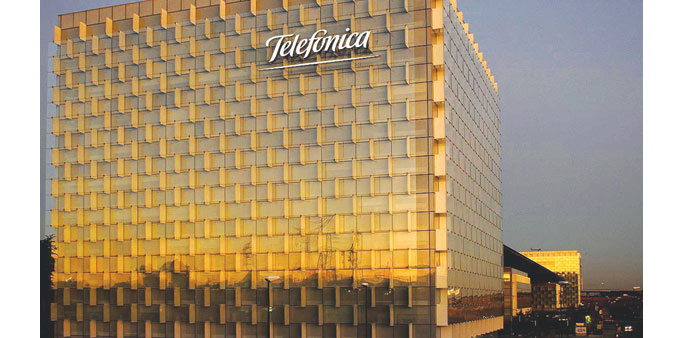Vivendi will get €4.66bn ($6.1bn) in cash for the Brazilian broadband unit GVT from Telefonica, which boosted the cash element of a previous bid to see off Telecom Italia. On top of the cash, Vivendi will get a 12% stake in the combined Vivo-GVT, of which about one third could be exchanged for a 5.7% stake in Telecom Italia if Vivendi so chose.
Reuters/Paris
French media company Vivendi picked Telefonica for exclusive talks over the sale of its Brazilian broadband unit GVT, spurning a rival bid from Telecom Italia.
Telefonica aims to fold GVT into Brazil’s leading mobile phone network Vivo, using GVT’s pay-TV and broadband services to chase higher-value customers and keep profits growing as mobile subscriber growth slows in the nation of almost 200mn.
Vivendi’s decision deals a blow to Telecom Italia, which needed GVT to shore up its own Brazilian mobile business Tim Participações, which lacks a fixed-line network.
For Vivendi, the GVT sale caps a tumultuous two-year overhaul in which it sold three telecom businesses and its video games arm to pay down debt and focus more on media and content.
“The Telefonica offer best meets the group’s strategic and financial objectives,” said the French company. “Vivendi begins a new phase in its development to become an integrated industrial group focused on media and content.”
Vivendi will get €4.66bn ($6.1bn) in cash from Telefonica, which boosted the cash element of a previous bid to see off Telecom Italia.
On top of the cash, Vivendi will get a 12% stake in the combined Vivo-GVT, of which about one third could be exchanged for a 5.7% stake in Telecom Italia if Vivendi so chose. Telefonica is Telecom Italia’s largest shareholder but the two have had a tense relationship for years since they also compete in Brazil.
French tycoon Vincent Bollore, who is Vivendi largest shareholder, led the talks with Telefonica and Telecom Italia in recent weeks in his first major strategic move since taking over as chairman in June. Bollore wants to get Vivendi’s remaining units, which include Universal Music Group and French pay-TV operator Canal Plus, to work more closely together to generate growth.
Vivendi is also expected to build up its media and content activities via acquisitions, sources told Reuters earlier, and will be flush with cash even after returning money to shareholders.
In its statement, Vivendi did not rule out taking minority positions in “allied companies to distribute content”, something it already did in negotiating the sale of its largest unit, French telecoms group SFR, to Numericable earlier this spring.
Vivendi is likely to take up the option to be paid for GVT partly in Telecom Italia shares, said two people close to the company.
Once the sales of SFR and GVT close, Vivendi will therefore own a portfolio of stakes in telecom companies in France, Italy, and Brazil, which it can exploit to sell more music and TV content, said one of the people.
Winning GVT was crucial for both Telefonica and Telecom Italia since their European home markets have been shrinking. Brazil brings in one fifth of Telefonica’s revenue and one third of Telecom Italia’s sales.
With GVT, Telefonica will gain a much bigger broadband network in Brazil without having to build it. Vivo is the country’s third-biggest broadband provider but is concentrated around the Sao Paulo region, whereas GVT has built coverage elsewhere, such as in Rio de Janeiro, the south and northeast.
Telecom Italia looks unlikely to come back with a new offer. Analysts say its balance sheet is too stretched and its chief executive pledged not to do anything “crazy” in a bidding war.
Its losing bid, also a cash-and-shares offer, valued GVT at €7bn, including €1.7bn in cash, a 16% stake in Telecom Italia and a 15% stake in the new Brazilian entity.
Telecom Italia’s Tim, number two in Brazil’s mobile market, may now be vulnerable to a takeover by rival Grupo Oi, which is exploring a bid to split up Tim between itself, Mexico’s America Movil and Telefonica.
Telecom Italia shares rose 1.6% by 1524 GMT as investors speculated that a sale of Tim Brasil could be in the offing. Oi shares also jumped as much as 3.5%.
“If TIM had merged with GVT it would have been a much tougher target,” said Alex Pardellas, a telecom analyst at CGD Securities in Rio de Janeiro. “Now it remains a natural candidate for consolidation.”

